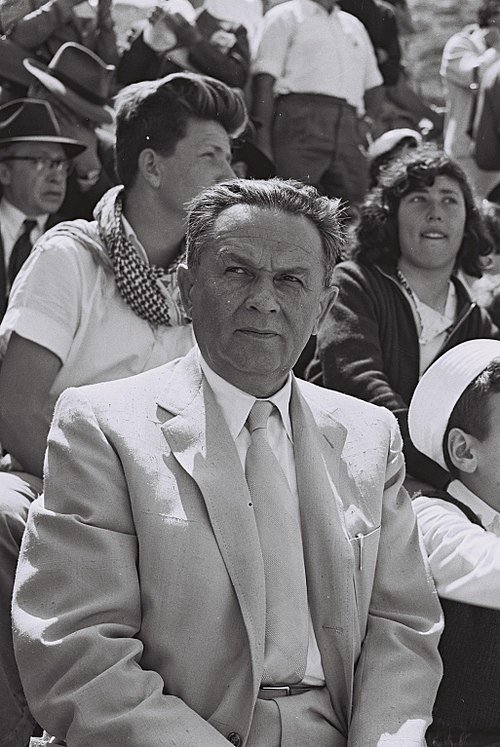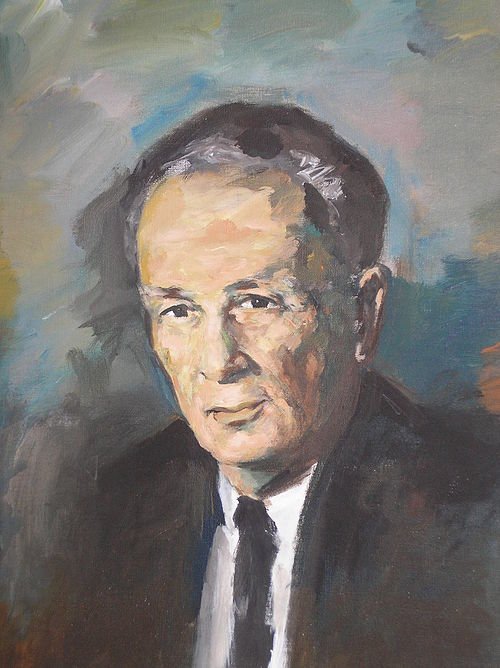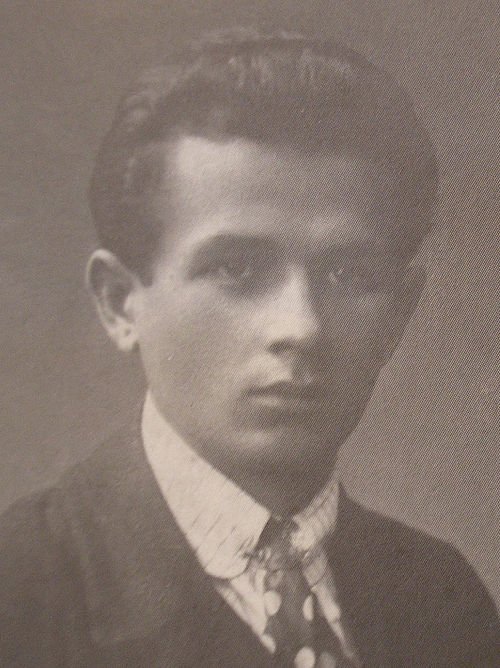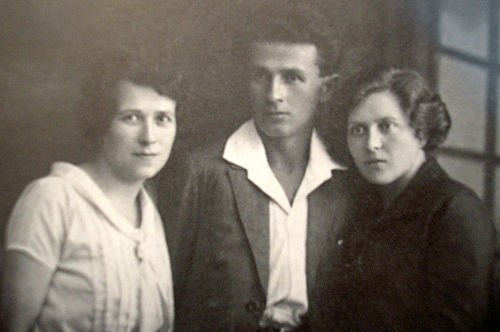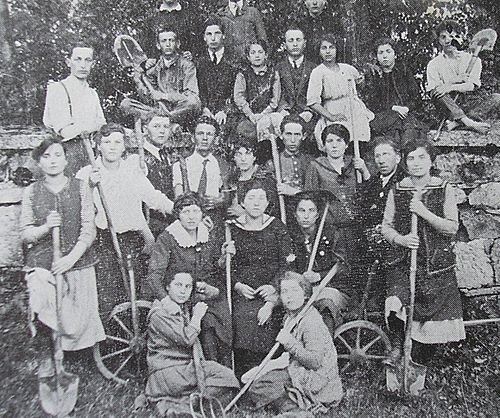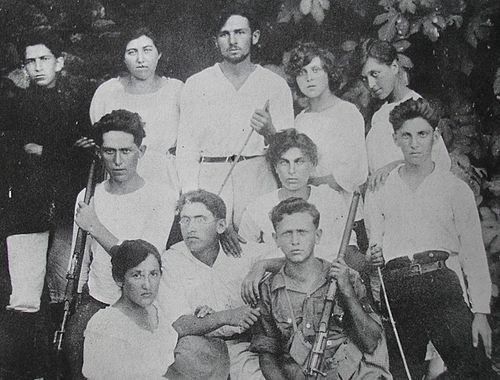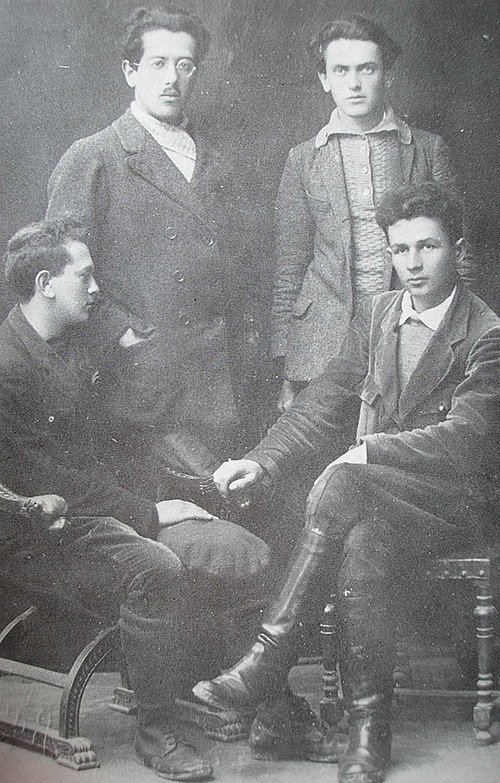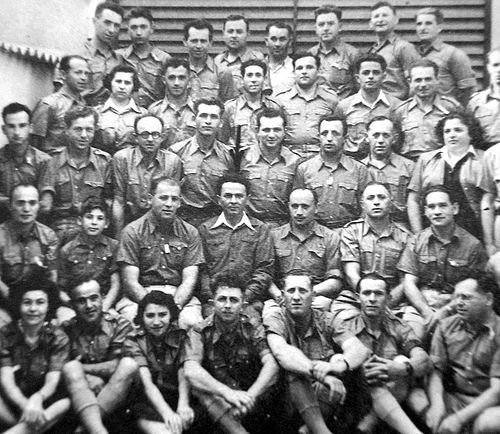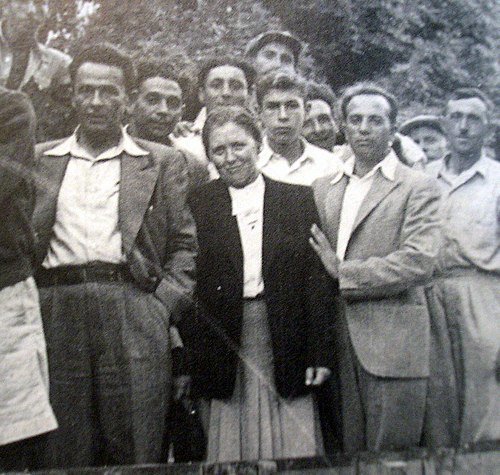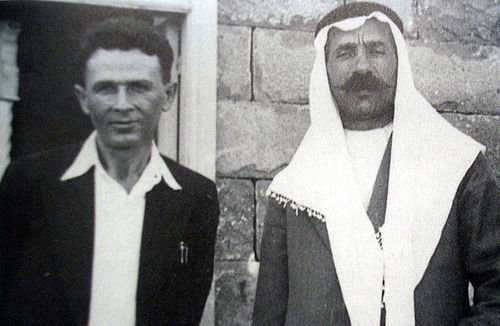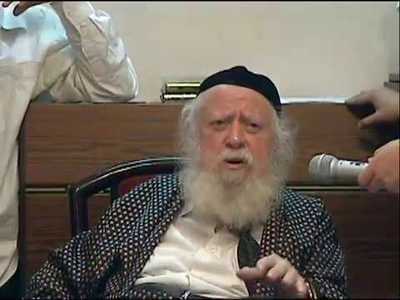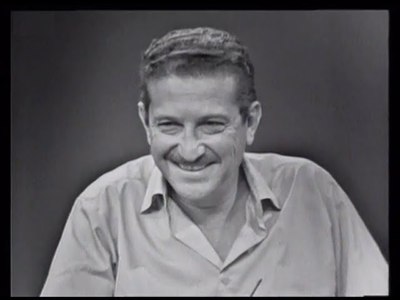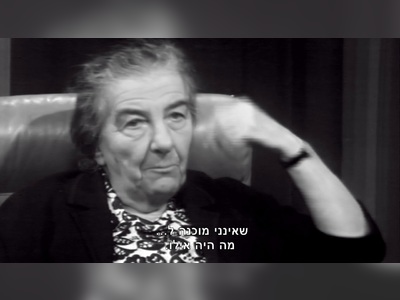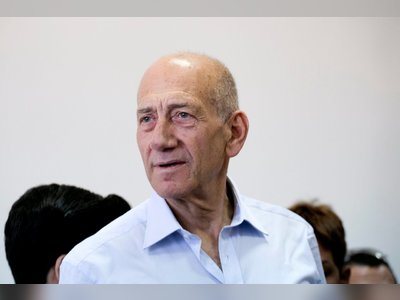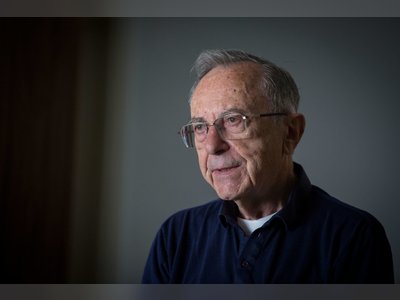Aba Hushi
Aba Hushi, born as Abraham Shneur (May 23, 1898 – March 24, 1969), was a prominent Zionist leader, socialist activist, and politician. He was a dedicated laborer and settler, a leader of the Poale Zion movement, a member of the First Knesset, and one of the founders of the Histadrut labor federation. Today, he is primarily remembered for his long tenure as the Mayor of Haifa from 1951 to 1969, during which he left an indelible mark on the city's character, development, and ethos.
Among his many contributions, he founded the University of Haifa, Haifa Theater, Carmelit, and the Haifa Youth Orchestra.
Aba Shneur was born in 1898 in the town of Turka (Turka) in Galicia, part of the Austro-Hungarian Empire (now in the Lviv Oblast of Ukraine). He was the son of Liba and Alexander Shneur. Liba was a housewife who managed a small farm, growing vegetables and tending to plum trees. Alexander, her second husband, was a cart driver in the surrounding villages, and his nickname was "Zisha." After Liba's divorce, she moved to Turka, where she met Alexander.
Fearing his conscription into the imperial army, he went into hiding in Liba's attic, and his personal documents were altered. His first name was changed to Alexander, and he adopted Liba's family name, "Shneur." Aba was one of six children born to Liba and Alexander: Atia, Aba, Hinda, Yaakov, Roza, and Malka.
After completing his studies, Aba attended the local gymnasium and excelled academically. He was proficient in Yiddish, German, Hebrew, Ukrainian, and Polish, and he also had some knowledge of Greek and Latin. After completing his studies, he planned to study medicine at the university and even purchased textbooks with the inscription "Belongs to Medical Student Aba Shneur." However, in 1914, World War I broke out, and the family fled to Bohemia in Czechoslovakia.
Membership in the "Young Guard"
After the family's return to Turka in 1918, the city came under Polish rule, and anti-Semitism in the city escalated. In response, a group of young people organized in the city, calling themselves "The Young Guard." They established a self-defense organization for Jews, which succeeded in protecting the Jewish community from violence. However, in other Polish towns, many pogroms took place during the same period. On August 4-5, 1918, a conference of "The Young Guard" was held in Ternopil, and Aba was one of the leaders of the conference. During this conference, he also called for the immigration to the Land of Israel.
In the spring of 1920, Aba Shneur, for the first time, recited a song at the conference of "The Young Guard" in Lviv, inspired by the heroism of Joseph Trumpeldor and his comrades in Tel Hai, titled "In the Galilee at Tel Hai" ("בַּגָּלִיל, בְּתֵל חַי, טְרוּמְפֶּלְדּוֹר נָפַל"). Indeed, the decisions made in Lviv reflected the spirit of the Tel Hai events – it was decided that the senior members of "The Young Guard" would immediately immigrate to the Land of Israel, and the efforts of the movement would focus on achieving this goal.
In July 1920, Aba Shneur immigrated to the Land of Israel with a group of 130 pioneers, all members of the "Young Guard" association, who came from Lviv, Stanisławów, Jarosław, Złoczów, and Turka. Upon their arrival in the Land, they were directed to a temporary immigrant camp set up in the location now known as Tel Aviv's Masaryk Square.
At that time, the area was covered with vineyards, and the newcomers lived in makeshift huts among the vines. On that night, Aba gathered the group and informed all members: "Cancel the Galician order; we have finished our exile, and from now on, we are Jews fulfilling our ideals in the Land of Israel." Aba discarded his Polish passport and demanded that his fellow group members do the same.
He himself changed his name from "Shneur" to "Hushi," a free translation of the name "Shneur," meaning "hasten" or "rush" in German and Yiddish. In the group, even the sisters Miriam and Hannah Montag were present, and he asked them to change their name from "Montag" to "Rekait," explaining that "Montag" means "the second day" in which the heavens were created according to Jewish tradition. The sisters initially refused his request but later changed their surname to "Man."
The Labor Office of the "Young Worker" movement took care of finding employment for the "Young Guard" members who had arrived in the Land. Aba Hushi's group found work on the roads funded by the British Mandate and initiated by the first British High Commissioner, Herbert Samuel. Hushi worked on road construction leading to the settlement of Rosh Pina, and between 1920 and 1921, he led the "Shomria Battalion," which paved the road from Haifa to Gedera (nowadays Ramat Yishai). Here are Aba Hushi's own words about his work on the road:
"At the end of the summer of 1920, our group, which had grown from 18 members to a camp of 110 young men and women, became the 'Shomria Battalion,' and we were tasked with working on the Haifa-Gedera road. We set up tents on the hill of the Goyim's threshing floor (nowadays carrying Kiryat Tivon houses), and we found around ten guys who had just disembarked from the ship, working daily on a common stone-breaking task, producing coarse gravel.
Their morale was low. Those of us who had learned the craft of breaking stones on the roads of Rosh Pina and were considered experts in breaking and roadwork asked the camp management to let us work as contractors for a week. After one week, we saw that with contract work (as opposed to daily labor), it was possible to break at least one kilometer of road and employ 30-40 workers a day for an 8-hour workday (including the girls).
We improved the morale. We canceled the joint stone-breaking group, and each one worked separately, with significantly greater productivity, advancing the work. When we completed the first kilometer of the road after a few weeks, the work management decided to celebrate the occasion with a special event... On a Friday night, under a magnificent moon. Guests came from Haifa, the few workers in the city, and the few bourgeois with them. At that time, it was considered a 'good tone' to get involved in labor and approach them.
Some veterans of the Second Aliyah were brought in from the city. Between 200 and 300 men and women gathered for the evening. It was a grand event. I stood with my comrades, organizing the event and registering the workers and supervisors on a large roll of butcher paper. I received a few well-wishers from the city, the veterans, and the wealthy bourgeois.
They congratulated me on the construction of the road and my foresight and ability to lead. They spoke to me in Yiddish, the language I had learned at home as a child in Turka, and I understood every word they said, but I answered them in Hebrew. The truth was that I had already begun to develop a complex with regard to Yiddish. I felt that Yiddish was the language of the Diaspora, and I could not see the possibility of returning to the language of the Galut (Diaspora)."
Years of pioneering
In the autumn of 1921, Hushi was one of the founders of the Worker's Council in Haifa. In 1921, after a period of training in the city of Jaffa, he was among the founders of the Poale Zion Party in Palestine, and he was sent as a representative to the World Congress of the party, which was held in Vienna. During the second half of the 1920s, he was one of the heads of the Worker's Council, and in 1928, he was among the founders of the Histadrut.
During the Arab riots of 1929, he was the commander of the Labor Brigade that helped the British Army suppress the riots in the Haifa area. As a result of the riots, he was expelled to Egypt, but he returned after a few months. In 1933, he participated in the establishment of the newspaper "Davar." In 1941, he was one of the founders of the Binyamin regional council, and he was one of its leaders.
Hushi took part in Jewish settlement in various places. He worked in Kinneret (at the southern edge of the Sea of Galilee) and in Rosh Pina, and he was one of the founders of Kfar Saba. He married Sarah Reznik, the daughter of Aryeh Reznik, a merchant and landowner who was also a member of the workers' movement. They had a daughter named Yocheved, who was born in 1932.
During the 1930s and 1940s, Hushi was a member of the council and secretary of the council of the city of Tel Aviv-Jaffa, in which he lived for several years. In 1948, Hushi was appointed as the head of the political department of the Hagana.
Mayor of Haifa
In 1951, Aba Hushi was elected as the Mayor of Haifa and held this position until his death in 1969. During his time as mayor, Haifa underwent significant development and transformation. Some of the key achievements and projects during his tenure as mayor include:
1. Carmelit: Aba Hushi played a crucial role in the establishment of the Carmelit, the world's smallest subway system, which was inaugurated in 1959. The Carmelit provided a modern public transportation solution for Haifa's residents and visitors.
2. University of Haifa: Hushi was instrumental in the founding of the University of Haifa in 1963. The establishment of the university marked a significant milestone in the city's history, contributing to its growth and development as an academic and cultural center.
3. Haifa Theater: Aba Hushi initiated the establishment of the Haifa Theater, contributing to the city's vibrant cultural scene.
4. Urban Development: Hushi oversaw various urban development projects, including the expansion of Haifa's port and industrial areas, which boosted the city's economic growth.
5. Transportation Infrastructure: He worked on improving the city's transportation infrastructure, including the construction of new roads and bridges.
Aba Hushi's leadership and vision helped shape Haifa into a dynamic and progressive city. His commitment to social justice, workers' rights, and cultural development left a lasting legacy in the city and the State of Israel.
Aba Hushi passed away in office on March 24, 1969. He is buried in the Haifa Cemetery, and his memory is honored through various landmarks and institutions named after him, such as Aba Hushi Boulevard in Haifa and the Aba Hushi Center for the Performing Arts. He is remembered as a dedicated leader, a champion of workers' rights, and a key figure in Haifa's history and development.
- אבא חושיhe.wikipedia.org
